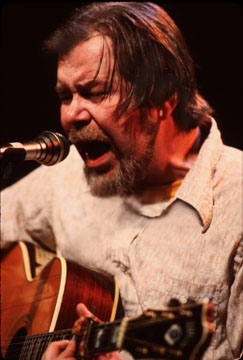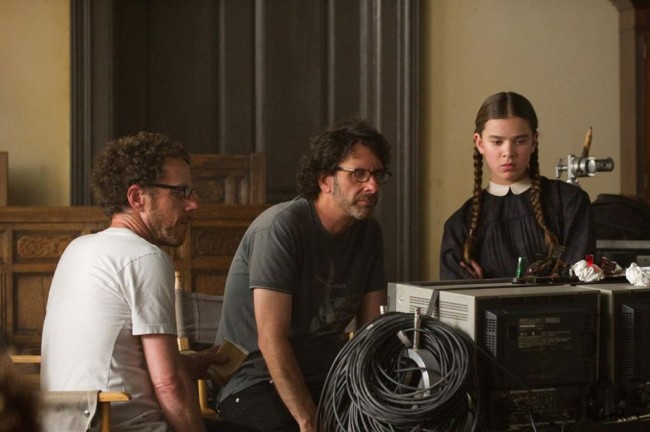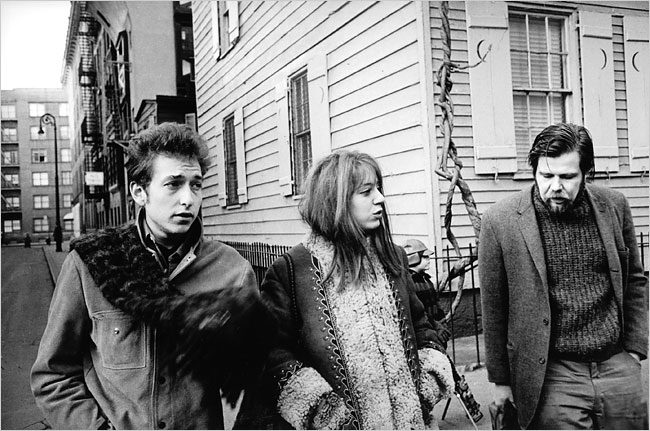After releasing a film every year since 2007, it looks like 2011 will finally be the year where we don’t get a new feature from Joel and Ethan Coen. But that doesn’t mean they aren’t working on something. A few weeks ago we learned their next project will have “quite a bit of music in it,” mostly coming live, from a single instrument. They said the parts in this original film won’t be written for anyone in particular and they compared it to Noah Baumbach‘s Margot at the Wedding, but besides all these vague details, what is it exactly about?
 24 Frames has uncovered the answer. Their source who is familiar with the project told them the Coens will follow the life of Dave van Ronk, “a legendary musician who presided over New York city’s iconoclastic coffeehouse period of the mid-20th century.” This figure was considered the “uncle” of Greenwich Village folk scene, in which such iconic figures such as Phil Ochs, Bob Dylan and Joni Mitchell were brought to light.
24 Frames has uncovered the answer. Their source who is familiar with the project told them the Coens will follow the life of Dave van Ronk, “a legendary musician who presided over New York city’s iconoclastic coffeehouse period of the mid-20th century.” This figure was considered the “uncle” of Greenwich Village folk scene, in which such iconic figures such as Phil Ochs, Bob Dylan and Joni Mitchell were brought to light.
The Coens are reportedly looking at Van Ronk’s posthumous memoir (published after he died at the age of 66 in 2002), titled The Mayor of MacDougal Street. This story also has even more relevance today, as he was arrested during the 1969 Stonewall Riots, a defining moment in gay rights, which eventually led to New York State legislature’s legalization of gay marriage yesterday.
Check out a photo of van Ronk with Dylan and his girlfriend Suze Rotolo below, as well a synopsis of the former’s memoirs. I’ve also included a video of van Ronk performing at the Philadelphia Folk Festival in 1981. Could the Coens get their True Grit star Jeff Bridges to play him? Certainly looks like the perfect fit.
Singer-songwriter Van Ronk did more than most to earn the heady title of his memoir, gussied up for publication by the author of the outstanding blues history Escaping the Delta (2004). In the folk-music ferment of late-fifties/early-sixties Greenwich Village, Van Ronk was a larger-than-life presence with a blustery personality to match his big frame, headlining the famous folk-music haunts and mentoring such up-and-coming stars as Bob Dylan. A masterful storyteller and robust singer who prided himself in making a living without leaving the Village, he was a musical sponge who picked up a wildly eclectic repertoire. He recalls the heyday of the pretourist, 1950s Village, before the so-called Folk Scare, when regulars went to Washington Square on Sunday afternoons for loose sessions that continued late into the night. He recalls first hearing Dylan–“the scruffiest-looking fugitive from a cornfield I do believe I had ever seen”–at a Village coffeehouse and being impressed (the new arrival thereafter often crashed on Van Ronk’s sofa). A richly evocative paean to a lost era.
What do you think about the Coens tackling this era for their next film?


